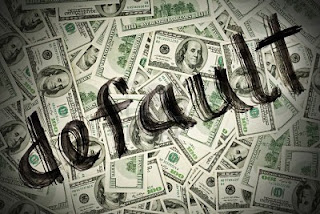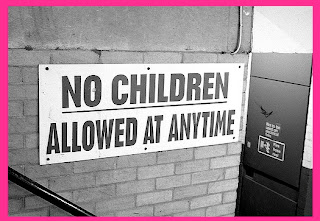Creating a new high tech political management center further attracts investor capital, brings youthful foreign talent, diversifies country's vital urban zones by function, and stimulates an energetic burst of national renewal.
Before being accused that moving a political capital elsewhere is a ridiculous and impractical idea, lets look at two construction trends already occurring where function specific "micro-cities" are rapidly materializing around the world. Although these deal with finance and innovation for now, it is not too outside the box to speculate development of political micro-cities with cutting edge infrastructure to experiment in combining innovation and governance. There are already precedents for it.
Trend A: Financial Centers
It has become common practice for many "developing" countries (quotation marks since really, which country these days isn't in dire need of super rapid and constant development) to build financial downtowns from scratch that emulate southern Manhattan and City of London. Considering the 50 trillion dollar plus valuation of overall stocks floating worldwide and the similarly 50 trillion dollar plus global bond market, the temptation to attract a major slice of that fiat money is certainly understandable.
Some examples of popularly known construction efforts at more efficient capital management magnets include..
Dubai International Financial Center (although it is hard to overlook the hideous caste system slave labor used to build and run it)
Shanghai World Financial Center (Shanghai sure changed in 20 years)
Seoul International Financial Center (IFC)
Moscow International Business Center (a lot of these blatantly try to copy lower Manhattan waterfront view to appear "Western" enough for the promotional advertising photography and video)
The Pragmatist had previously touched upon an idea of building a true innovation hub via a concentric circle approach for an enclosed "Science Lab-Factory city" which would enable rapid reindustrialization within the Western world. This concept of a Research & Development to Prototype to Factory production assembly line city is not yet ready for prime time within popular imagination. It may eventually be attempted by some region if certain psychological obstacles are overcome. These obstacles include potential accusations of too much central planning and top down control in the beginning (even if the city is to be governed by direct democracy) and perceived regimentation that may result in creative stifling (since residential area lay out would also be a macro "human talent assembly line" within city's concentric circles). A fine line between human autonomy and desired speed of infrastructural construction/efficiency will need to be calibrated in the 21st century. Lessons from past FDRist and Soviet developmental approaches should be studied in order to create synergy of nourished individual autonomy and systems engineering approach so the former ends up aiding the latter in breakneck infrastructural efficiency rather than be stifled by it. Nobody wants to feel like a cog in the machine (even if the machine is run for the collective betterment of all versus fattening shareholder pockets).
In the meantime, rapidly developing countries are attempting to build their innovation hub micro-cities in the form of glorified and super expanded gated hybrids of commercial areas and college campuses. This creates an attractive investment showcase environment for foreign start ups, their bourgeois workers and families, and the capital necessary to sustain it all.
In essence, we're seeing efforts to build MIT and Silicon Valley type environments from scratch and geared to specific broad clusters of industry. In fact, considering how much MIT has cooperated with these efforts, it may be time for MIT management to start thinking in terms of creating the first global technology university franchise (one may refer to this half jokingly as McDonaldsization of MIT, only in a good way...). These gated showcase cities of course have an umbilical cord both to the state and partially to their financial hub city brethren. This is absolutely necessary for now. The state should get a lot more financially involved in these projects and their supporting infrastructure since 21st century challenges simply cannot wait for usual organic business growth to provide solutions quickly enough.
Some recent examples include:
Masdar City in Abu Dhabi - A totally solar powered zero carbon footprint city and a hub for advanced green technology development.
Skolkovo in Russia - An attempt to replicate base of US technological innovation in the 1970s-1990s period from the top down and through a centrally planned effort. Even DARPA equivalent is in the works.
It is said that college towns would become the new centers of civilization after a nuclear war due to the prevalence of labs, equipment, expert personnel, and scientific/technical manuals. Innovation hubs (even if their original design partially relies on attraction of gambling chips from transnational financial casinos of Wall Street, Hong Kong, etc.) can always be streamlined, clustered, elaborated upon, and quickly replicated if an effective and internationally and transculturally transplantable design is discovered. In a way, cities from scratch allow creation of a parallel embryonic global civilization in the shadows of the old one.
Which brings us to...
Trend C: ? - Governance hubs as a "A Fresh Start" in the minds of the public, to create a new psychological atmosphere and sense of urgency for politicians, and encourage experimentation with Internet enabled democratic legislation.
Creating a psychological feeling of a "fresh start" in the tired social psyches of many of the world's countries and their elites (particularly the stagnant Western world) by relocating key government buildings and functions to new governance hubs.
A number of nations have already moved their capitals around for geopolitical purposes. Most federal buildings were moved from Bonn to Berlin following Germany's reunification and recently there is even serious debate in Russia to move the political capital for the third time in a hundred years. Historically, urban decentralization has made a country stronger (one city being entertainment capital, one business, one political, one industrial, one cultural, etc). Germany is a good example of being a cluster of healthy regional capital level cities.
Notable examples of capitals being built anew from nothing are:
Brasilia, Brazil - Rapidly designed and built from scratch to be Brazil's futuristic political capital in the mid 20th century. It is closer to the center of the country than Rio, allowing better and closer geographic rule while stimulating nearby regions by opening up new trade, energy, and informational links.
Once again, capital was moved to a more central location in the country for better national consolidation (think moving key federal government functions away from tired and hated Washington DC and closer to the center of United States so USA's occupied peripheries like Texas and California don't resent being ruled from thousands of miles away).
Moving the nation's capital to a new more central location fed by high tech infrastructure and treasuries undivided support accomplished this. The trends of constructing financial and innovation hubs will spawn a final binding tendency that better manages the entire process holistically. Humans are primarily shaped by their environment and that includes politicians. Elderly men and women sitting in crumbling buildings hundreds of years old will not do as much innovative managerial thinking as those who legislate in a fresh high tech development (preferably one that has structures with high ceilings).
Picking the right location for the move is a story in itself as it would stimulate unprecedented series of cultural, social, and economic ripples from the entire country.





































